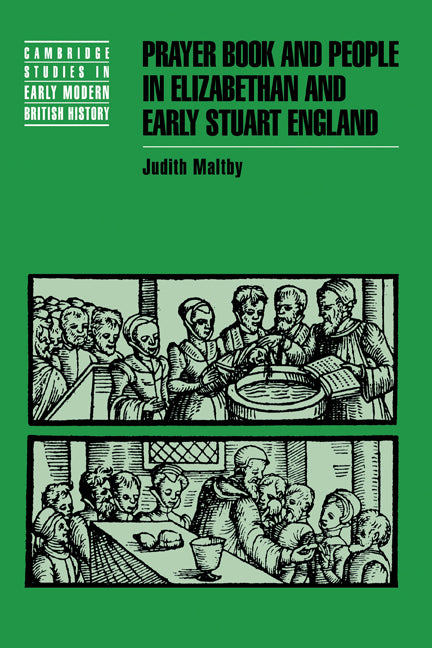Freshly Printed - allow 8 days lead
Couldn't load pickup availability
Prayer Book and People in Elizabethan and Early Stuart England
Studies conformity to the Church of England after the Reformation.
Judith Maltby (Author)
9780521453134, Cambridge University Press
Hardback, published 23 July 1998
332 pages, 6 b/w illus.
22.9 x 15.2 x 2.2 cm, 0.66 kg
'… a remarkable book … the force of [Dr Maltby's] argument is inescapable. No historian of the Reformation, of the rise of Anglicanism, or of popular religion in the localities, can afford to neglect her work.' John Guy, The Church Times
This book explores the culture of conformity to the Church of England and its liturgy in the period after the Reformation and before the outbreak of the Civil War. It provides a necessary corrective to our view of religion in the period by a serious exploration of the laity who conformed, out of conviction, to the Book of Common Prayer. Through the use of church court records and parliamentary petitions, the views of lay people are examined - those who were neither 'puritan' nor 'Laudian', yet were committed to the reformed liturgy and episcopacy out of sincere belief, and not as a matter of political expediency.
Acknowledgements
List of figures
List of tables
1. Introduction: the good, the bad, and the godly? The laity and the established church
2. Conformity and the church courts, c. 1570–1642
3. The rhetoric of conformity, c. 1640–1642
4. Sir Thomas Aston and the campaign for the established church, c. 1640–1642
5. Parishioners, petitions, and the Prayer Book in the 1640s
6. Conclusion: laity, clergy, and conformity in post-Reformation England
Appendix 1. Petitions for the Book of Common Prayer and episcopacy, 1640–1642
Appendix 2. Subscribing Cheshire parishes and townships, 1641
Appendix 3. Five subscribing Cheshire communities
Bibliography.
Subject Areas: History of religion [HRAX], Early modern history: c 1450/1500 to c 1700 [HBLH], British & Irish history [HBJD1]


